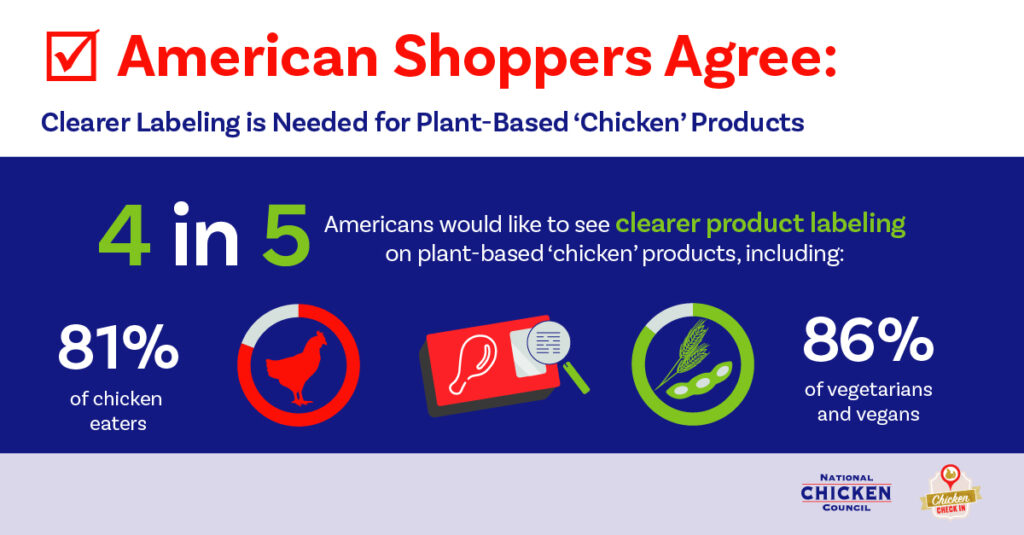Draft guidance released Monday by the Food and Drug Administration (FDA) recommends that primary labeling for plant-based alternatives include more detailed information about the ingredients used to better inform consumers.
The guidance, while not legally enforceable, sets out to clarify exactly what ingredients are used in each product and emphasizes the potential nutritional differences between plant and animal-based products.
Manufacturers of these products could still use names of animal-based foods in the statement of identity, but it must not cause the labeling to be misleading, according to the guidance.
For example, rather than just labeling a product as “plant-based fish sticks,” the FDA recommends that manufacturers include the exact ingredients used. So, for example, the label could read “plant-based chickpea & lentil-based fish sticks.”
Some products have names with modified spelling for animal-based products like Chik’n, Be’f, or Cheeze. The guidance appears to allow these spellings to continue, but the labels must also accurately reflect the exact plant sources.
In recent years, grocery shelves and freezers have been flooded with varieties of plant-based proteins that do not contain any amount of poultry, yet bear the name ‘chicken’ on their labels, implying the product is derived from animals and contains real chicken meat. Considering this, NCC, in June 2022, wrote to the leadership of both the FDA and the U.S. Department of Agriculture (USDA) to urge the agencies to issue clearer guidance defining how to name these plant-based products and prioritize enforcement for products marketed in a misleading manner.
NCC also submitted official comments to FDA Docket 2021-N-0553, “Labeling of Plant-Based Alternatives to Animal-Derived Foods,” where we expressed concern that plant-based proteins marketed as ‘chicken’ are misbranded under the Federal Food Drug and Cosmetic Act because their labeling misleadingly indicates that the products contain real chicken meat and are nutritionally comparable to real chicken meat. In fact, neither is true.
Additionally, NCC highlighted that the USDA Food Safety and Inspection Service has long overseen a well-established set of regulations and policies for how poultry products are supposed to be labeled. The Poultry Products Inspection Act likewise prohibits the labeling of products in a false or misleading manner, as well as the marketing of one food under the name of another. The NCC comments can be read in their entirety here.
Further, in June 2022, NCC surveyed Americans nationally regarding consumer attitudes about chicken and plant-based ‘chicken’ alternatives. Survey participants included individuals who consume meat and animal products, along with flexitarians, vegetarians, and vegans. The results indicate the majority of Americans want clearer product labeling and separate shopping sections for plant-based products.
One in five Americans (21 percent) have reported accidentally purchasing a plant-based product, believing it to be real chicken. Consumers who have experienced such confusion point to plant-based packaging and labeling as imitating authentic chicken products too closely. Only 14 percent of Americans think that plant-based ‘chicken’ products should be permitted to use the term ‘chicken’ on the product label. 69 percent of Americans agree the term ‘meat’ should only refer to products made from animals, and 81 percent of consumers feel plant-based ‘chicken’ should be clearly labeled as ‘plant-based.’


